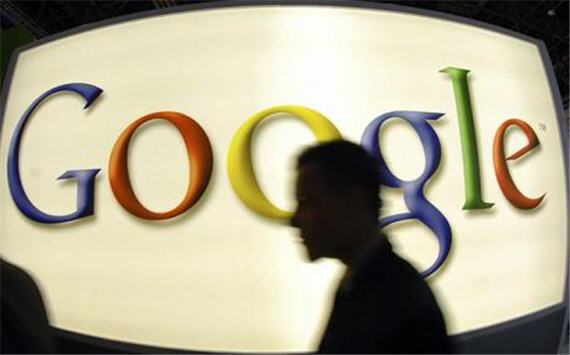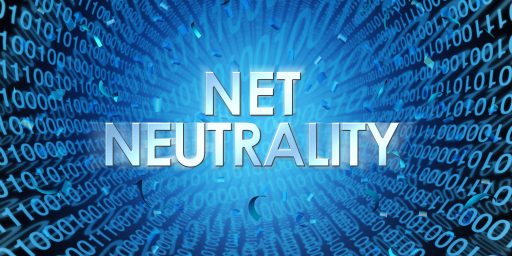Google Hires Law Professor/Blogger Eugene Volokh
Google may be anticipating some interesting First Amendment issues it will have to deal with in the future given who it hired recently to advise on First Amendment issues:
IS Google search an intermediary like the phone company — simply connecting people with the information they seek? Or is Google search a publisher, like a newspaper, which provides only the information that it sees fit and is protected by the First Amendment?
There are good reasons for Google to want to be considered a mere connector; like other Internet companies, it can beg off responsibility for what is transmitted by its users. That is the useful stance when it comes to rebutting claims of copyright infringement or libel.
But when the issue is anticompetitive behavior — a charge made by rivals and some businesses — Google has lately been emphasizing that it sees itself as a publisher, and it is appealing for different kinds of protections, in the realm of free speech.
How Google has decided to say this is almost as interesting as what is being said. The company hired Eugene Volokh, an influential conservative blogger and a professor at the University of California, Los Angeles, to write a paper last month. In it, he argues that Google search results are protected speech.
Mr. Volokh freely acknowledges that the paper, posted on his blog and shared widely on the Internet, is not academic scholarship but a piece of advocacy, written in his capacity as an academic affiliate at a Los Angeles law firm, Mayer Brown. It is something that would typically be prepared if Google were facing a trial on these issues.
There is no such court case at the moment that Mr. Volokh is pointing toward with his paper, but Google has become a target over how it runs its search engine. Competitors and some companies say Google’s search algorithms favor services owned by Google, a charge Google denies, but one that has drawn the attention of regulators in Europe and the United States.
In September, Google’s chairman, Eric E. Schmidt, was called before a Senate antitrust panel to defend his company’s practices. The chairman of the subcommittee, Herb Kohl, Democrat of Wisconsin, put the question bluntly: “Is it possible for Google to be both an unbiased search engine and at the same time own a vast portfolio of Web-based products and services?”
Mr. Schmidt’s response was measured. He noted that if Google stopped providing helpful search results people would start using other search engines. He also said that profit motives would not distort Google’s search results. “I’m not sure Google is a rational business trying to maximize its own profits,” he said.
If Mr. Schmidt was the good cop, telling the Congress, in effect, “we get it,” when it comes to monopolistic behavior, Mr. Volokh is the bad cop: the message of his paper is that Google is a publisher and can favor its own material or even block another’s. If you don’t like it, tough luck. Try telling a newspaper what it should be printing.
Given that Google now competes with other entities in everything from online maps, to shopping, to social media outlets, it isn’t beyond the realm of possibility that they could end up facing these issues in court, either from private entities or the government, at some point in the near future. Additionally, it’s fairly well known that the company allows people to pay to have their links appear prominently in response to certain keyword searches, although if they are actual ads that fact is usually identified along with the search result. With Google the predominant means by which people search the Internet at this point, where your site appears in response to a specific search can often make or break a web site. So, any favoritism that Google shows, or appears to show, in connection with the placement of results could potentially end up being the subject of litigation or at least a legal complaint of some kind. On the government side, there are antitrust and potential “unfair trade practices” concerns to worry about, as Senator Kohl’s question to Schmidt noted above clearly suggests.
Volokh’s argument, essentially, is that Google is a publisher and thus permitted by the First Amendment to essentially do whatever it wants:
His argument, fundamentally, is that when Google assembles search results, it is communicating with its readers, and making selections about what to communicate. In that way, it is the same as a print newspaper that prioritizes news on its front page; a guidebook that selects local attractions to highlight; or an online news aggregator like the Drudge Report.
Yes, the decisions by those kinds of organizations are made by people, while Google’s search results are made by computers that apply a supersecret algorithm, but who created that algorithm? Mr. Volokh asks.
“All these speakers must decide: Out of the thousands of possible items that could be included, which to include, and how to arrange those that are included?” Mr. Volokh writes. He adds that “all these exercises of editorial judgment are fully protected by the First Amendment.”
Interestingly, these First Amendment protections as a speaker are unrelated to the so-called safe harbor protections that shield Web sites like Google from responsibility for content that is created by others.
In that sense, Mr. Volokh said, “Google was getting the best of both worlds,” meaning the company could argue one position — it is a connector — when it comes to safe harbor, but another position — it is a publisher — when it comes to anticompetitive issues. To Mr. Volokh they are not mutually exclusive.
Other legal commentators go on to note in the linked article that Volokh’s argument could potentially also be used to argue against net neutrality, a policy position that Google has favored strongly over the years. The paper doesn’t address that issue since it’s not entirely relevant to the issue that Volokh was asked to write about, but I’d have to think that the opponents of net neutrality had already thought of these arguments themselves, or something similar, so it’s not like Volokh’s paper is some kind of anti-net neutrality time bomb waiting to go off.
You can read Volokh’s paper at this link. It’s relatively short (less than 30 pages) and not overly technical from a legal point of view, so it should be accessible to anyone interested in the topic.







The problem of course is that now that Volokh is on Google’s payroll, one can legitimately doubt the independence of his future legal arguments.